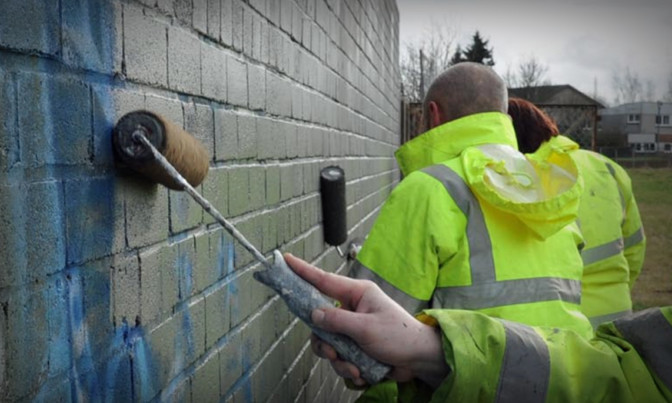Offenders sentenced to community payback orders in Dundee have carried out more than 6,000 hours more work than they did last year.
The dramatic increase from 33,500 hours to more than 40,000 is the equivalent of more than 270 days.
The report going before councillors next week also reveals that the number of offenders completing unpaid work has risen from 71% to 73%.
Ken Lynn, convener of the social work and health committee, said: “Many of the offenders who have completed their community payback orders have been positive about the supervision they have received while carrying out the work.
“They also had good things to say about the benefits of a routine and the opportunities that being on the order gave them to learn and develop new skills.
“I am sure that these efforts, combined with the appropriate support across the whole system, will contribute towards a reduction in re-offending rates.”
According to the report, written by director of social work Jennifer Tocher, the improved figures were primarily due to the completion of four major sports development projects at Riverside, Charlotte Street and Whitton Park pavilions and the Craigie sports hub.
She added: “In total, 89 paid work projects were completed during the year at locations across the city.
“A key part of this has involved liaison with the eight local community planning partnerships and a dedicated email address for referrals.
“Feedback indicates that 95% of offenders were positive about their supervision during their order, with many commenting on the support they received while carrying out the work, the benefits of a routine and opportunities to develop new skills.”
She also highlighted the reduction in the number of orders imposed with a substance misuse treatment requirement, from 129 to 87.
The report into community payback orders, which will be presented to the social work and health committee on Monday, also suggests that the first two years of community payback orders have seen a reduction in the number of short-term prison sentences being imposed.
In the first year there were 401 prison sentences handed down, with 269 in year two as the alternative of a community-based disposal with the element of unpaid work gathered pace.
The report also revealed that a resettlement trial introduced with the Scottish Prison Service at Perth prison led to an increase from 104 to 258 offenders voluntarily engaging with social services on release.
Jennifer Tocher added: “There were also significant increases in the number of young people and women accessing resettlement services while in custody at Polmont, Edinburgh and Cornton Vale prisons.”
